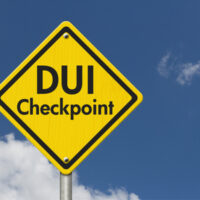Overcoming the Field Sobriety Tests in a DUI

The Fifth Amendment’s right to remain silent gives drivers the absolute right to refuse to perform the three approved Field Sobriety Tests. However, for various reasons, almost no one asserts that right. Instead, almost everyone gives in to police officer pressure and performs at least some FSTs.
If the defendant submitted a chemical sample, as most do, the FSTs establish probable cause for the arrest. If the defendant did not provide a chemical sample, prosecutors normally rely on the FST results as circumstantial evidence of intoxication.
In either case, a Port St. Lucie criminal defense attorney must be able to take on the FST evidence. Thanks to the presumption of innocence, there’s no reason to completely disprove the results. An attorney must only create reasonable doubt.
Horizontal Gaze Nystagmus
Usually, the HGN test/DUI eye test is the first exam in the three-test battery. Since officers hardly ever tell defendants the purpose of this test, the compliance rate is usually high.
Most people have taken an HGN test before. Subjects must track moving objects, like fingertips, with their eyes without moving their heads. If the test administrator observes involuntary pupil movements at certain angles, the subject probably has nystagmus. And, alcohol intoxication causes nystagmus.
Most people also have nystagmus. However, the symptoms are so mild they do not know it. So, when officers ask if they believe they have any pre-existing conditions, they honestly answer “no.” Additionally, alcohol intoxication is not the only cause of nystagmus. In fact, it’s not even the leading cause. Mild brain injuries and genetic abnormalities cause most nystagmus cases.
Because of these weaknesses, many Treasure Coast judges only allow HGN results into evidence for limited purposes.
Heel-to-Toe Walk
The walking-a-straight-line test might be the signature DUI field sobriety test. Subjects must walk a straight line heel to toe forwards and backwards without using their arms or hand for balance. During the test, officers look for intoxication clues, such as:
- Starting the test before the officer says “begin,”
- Beginning with the wrong foot,
- Failing to walk heel to toe,
- Taking the incorrect number of steps,
- Stumbling or swaying,
- Using arms for balance. And
- Stopping the test before the officer ends the test.
Environmental conditions significantly affect the outcome of the HTW test. It’s almost impossible to walk an imaginary line heel to toe, or to walk any line heel to toe if the surface is not perfectly flat and level.
Making matters worse, during roadside FSTs, bright squadcar lights usually flash in the background. By design, these lights have a disorienting effect on people who see them.
One-Leg Stand
The final FST combines the flaws of the previous two. People with any mobility impairments whatsoever cannot stand on one leg for more than a few seconds without losing their balance. And, since this test is usually the last one, most defendants are physically and mentally fatigued. That fatigue often affects their performance.
For this test, defendants must elevate one leg about forty-five degrees and stand as still as a statute until the officer ends the test. Sometimes, the test has a closed period, like fifteen seconds. Other times, officers have defendants keep their legs elevated until they sway.
Contact a Tenacious Lawyer
FST results are far from conclusive proof of intoxication. For a free consultation with an experienced Port St. Lucie criminal lawyer, contact Eighmie Law Firm, P.A. Convenient payment plans are available.
https://www.eighmielawfirm.com/how-does-the-state-prove-a-drug-possession-case/
